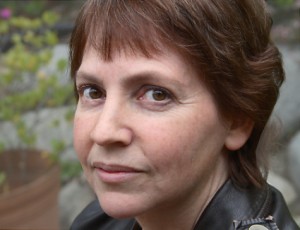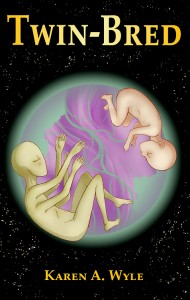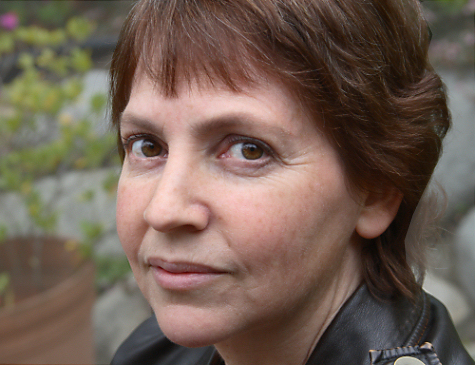An Interview with Karen A. Wyle: Author & Attorney
Sylvia: Hi Karen, it is such a pleasure to interview you. I know how busy you are so thank you for your time. Please give our readers a brief introduction of yourself and a little about your book.
Karen: Thank you Sylvia, I appreciate your generous offer to interview me. I am an appellate  attorney, photographer, political junkie, and mother of two daughters, living in a county outside a town in Indiana. I am a lifelong reader; I read science fiction, historical fiction, biography, history, 18th and 19th Century English classics, mysteries, YA, and once in a while a bit of fantasy. I write science fiction, general fiction and picture books — so far.
attorney, photographer, political junkie, and mother of two daughters, living in a county outside a town in Indiana. I am a lifelong reader; I read science fiction, historical fiction, biography, history, 18th and 19th Century English classics, mysteries, YA, and once in a while a bit of fantasy. I write science fiction, general fiction and picture books — so far.
My novel Twin-Bred asks the question: can interspecies diplomacy begin in the womb? After seventy years on Tofarn, the human colonists and the native Tofa still know very little about each other. Misunderstanding breed conflict, and the conflicts are escalating. Scientist Mara Cadell’s radical proposal: that host mothers of either species carry fraternal twins, human and Tofa, in the hope that the bond between twins can bridge the gap between species. Mara lost her own twin, Levi, in utero, but has secretly kept him alive in her mind as companion and collaborator.
Mara succeeds in obtaining governmental backing for her project – but both the human and Tofa establishments have their own agendas. Mara must shepherd the Twin-Bred through dangers she anticipated and others that even the canny Levi could not foresee. Will the Twin-Bred bring peace, war, or something else entirely?
Sylvia: What inspired you to write your first book?
Karen: My very first book, written at age 10, was a labor of love for my fifth grade teacher. It  was a picaresque tale of a boy and his dragon, 200 penciled pages long. I’m not sure that counts.
was a picaresque tale of a boy and his dragon, 200 penciled pages long. I’m not sure that counts.
As for my first published novel, ‘Twin-Bred,’ I am a lifelong science fiction fan. When I decided to take part in National Novel Writing Month (NaNoWriMo), and sat down to come up with some book ideas, science fiction kept happening. At about the same time, I read an article about amazing interactions between twins in utero, captured on video. The researchers had found synchronized movement, touching, even kissing. Either the article or a comment on the article mentioned the traumatic, often devastating, impact on those whose twin — identical or fraternal — had died in utero or shortly after birth.
Straining this information through the science fiction filter in my mind, I imagined a scientist seeking to overcome the comprehension gap between two intelligent species by way of the bond between twins. It would be natural for the scientist who conceived this idea to be a twin. It would add emotional depth to the story if she were a twin survivor. And for added strangeness and interest, what if she had somehow kept her lost twin alive as a companion, who could be a character in the story?
I have always been fascinated by communication issues and the struggle to understand what is different. I also find myself returning constantly to the themes of family relationships, unintended consequences, and unfinished business. All these threads wove together to form the story of Twin-Bred.
Sylvia: Is there a message in your novel that you want readers to grasp?
Karen: I did not have conveying a message as a goal when writing the book — but I hope readers will come away with the thought that even though the attempt to make a difference can have unexpected and even adverse consequences, it’s better to try than not.
Sylvia: Do you have any advice for other writers?
Karen: Presumptuous as it seems, I do. . . .
- Become compulsive about multiple backups of your idea notes, works in progress, rough drafts, subsequent drafts, etc. Use “the cloud” (Web-based storage), e.g., Dropbox or Evernote. (I use Dropbox. Once it’s running on your computer, it will back up a document stored in your Dropbox folder every time you save. But check periodically to make sure it’s still running!) Email attachments to yourself (and then check whether your email host is periodically deleting them). Put files on a separate hard drive and on flash drives.
- This one is YMMV (Your Mileage May Vary). That said; I and many other authors find it essential to keep the inner editor gagged and stuffed in a closet when we’re working on a rough draft. Don’t be afraid to leave blanks or bracketed notes as you go. (My second-to-latest rough draft had one that read “[insert appropriate South American country here].”) National Novel Writing Month, in which participants aim to write a novel of at least 50,000 words within the month of November, is a great way to accomplish this. There’ll be time enough later for lots and lots of rewriting.
- A related point: find the process that works for you. Some authors outline in detail. Others find too specific an outline stifling, and work from less organized notes of possible scenes, or with no notes at all. Some have a fixed time of day for writing, and allow nothing to disrupt it; others flit back and forth all day between writing and other tasks. Some use computers; some still write longhand, and a few swear by typewriters.
- Think seriously about self-publishing. There’s a wealth of info and support out there for indie authors. Conversely, this is a risky time to sign a contract with an agent or publisher. Because of the uncertain and fast-changing conditions in the publishing industry, many agents and publishers are inserting “rights grabs” and other clauses in their contracts that could cripple an author’s career. Some of the worst language may be hidden in unexpected places like “warranty” clauses. If you do sign with an agent or publisher, try to find a way to pay a good IP attorney to go through the contract with a microscope. Don’t let the allure of “having an agent” or “being published” lead you to grab at an offer of representation or publication without vetting it thoroughly.
Sylvia: What marketing techniques have you used to sell your books and which ones have been most successful?
Karen: I’ve sought out book bloggers who review science fiction and/or self-published books. I’ve gotten involved in websites for authors and readers, such as Goodreads and Shelfari. I’ve followed up on information about free or inexpensive online promotions. Most recently, I signed up with KDP Select, used the first two of my five free days (when the Kindle edition was free on Amazon), and publicized the heck out of those free days. The combination of good reviews on Amazon and the Amazon freebie goosed my sales considerably, although the effect was short-lived, and also led to more reviews.
Sylvia: Why should we buy your book?
Karen: Here are a few reasons:
- It tells a new story. As one reviewer put it, “it is one of the most original stories I’ve ever read, not an easy thing given the countless variations on human/alien encounters and relations already published.”
- Almost all the reviews to date describe the book as particularly well written.
- Those aren’t all the nice things the reviews have said!
- It’s a not-too-expensive paperback or a ridiculously inexpensive eBook.
- If you don’t read the book, you won’t understand the sequel!
- The more people who buy the book, the sooner I’ll feel justified in publishing the sequel (currently in rough draft) — and many of those who have already read Twin-Bred are eager for the sequel. So you’ll be doing a public service. 🙂
Sylvia: Is there a special place that you prefer when you write?
Karen: I find my desktop the most convenient computer to use. I would prefer that my desktop be in a lovely, tidy office with an ergonomically designed desk and chair and a nice view, instead of a horrendously cluttered office with window blinds stuck in the down position and an office chair awkwardly fitted to a cute little writing desk — but so it goes.
Sylvia: What projects are you currently working on?
Karen: I’m revising a novel tentatively titled Reflections. It’s a family drama with mystery elements, set in an afterlife of my own devising — one well suited to confronting unfinished business.
Sylvia: What is your POWER WORD?
Karen: It might be PERSPECTIVE. I often need to step back and see a situation from someone else’s point of view, or imagine how I will view it from a more comfortable distance in time. Not every problem can be solved by understanding someone else’s perspective — but it’s a good start in assessing whether there may be a solution.
Sylvia: Do you have any favorite observations about writing in general?
Karen: My experience has — to my surprise — borne out Stephen King’s observation that an author’s role is akin to that of a paleontologist uncovering a fossil. I often feel that I’m discovering, rather than inventing, developments in my stories. Like a paleontologist, I am often unsure just how the fragments I find are meant to fit together. . . .
In her essays on writing science fiction and fantasy, Ursula K. LeGuin has some lovely things to say (which I wish I could remember verbatim) about telling lies (fiction) in order to tell the (fundamental) truth.
Sylvia: Who are several of your greatest literary inspirations?
Karen: George Eliot (pen name for 19th century British novelist Mary Ann Evans), whose novels confront the terrifying fact that sins and other mistakes can be irreversible.
Mary Doria Russell, contemporary novelist in science fiction and historical fiction, for consistently giving her readers articulate and lovable characters, while exploring timeless themes.
William Shakespeare, for demonstrating beyond question that plot isn’t everything (since most of his were borrowed).
Sylvia: If you were ever to write an autobiography, what would its title be?
Karen: Possibly Detour Without Signs, or else The Scenic Route.
Sylvia: Wow, this has been great! Thank you so much for your time. Please share your contact information.
Karen: Thanks so much, Sylvia! My contact is below.
- Website: www.KarenAWyle.net
- Facebook: www.facebook.com/KarenAWyle
- Facebook: www.facebook.com/TwinBred
- Twitter: http://twitter.com/wordsmithwyle
Purchase links for Twin-Bred:
- Amazon (Kindle): http://amzn.to/u2OtVP
- Amazon (paperback): http://www.amazon.com/Twin-Bred-Karen-Wyle/dp/1463578911/ref=tmm_pap_title_0
- Barnes & Noble online (paperback): http://bit.ly/xsyzwL

Sylvia Browder is CEO of Specialty Home Services LLC, a Home Improvement Company; a Small Business Consultant at Browder Consulting Group, a startup consultancy firm to help women with startup assistance, marketing, website and graphic design work and other support services. In addition, she has co-authored several published books; publisher of ‘Sylvia Browder’s Blog for Women Entrepreneurs’ a lifestyle blog; and publisher of ShopSpendBlack.com Business Directory & Blog platform created to help consumers find black owned businesses in a searchable format. In her spare time, she enjoys spending time with her husband of 30 years; 5 adult children and 5 grandchildren; church; friends and motorcycle riding.

















